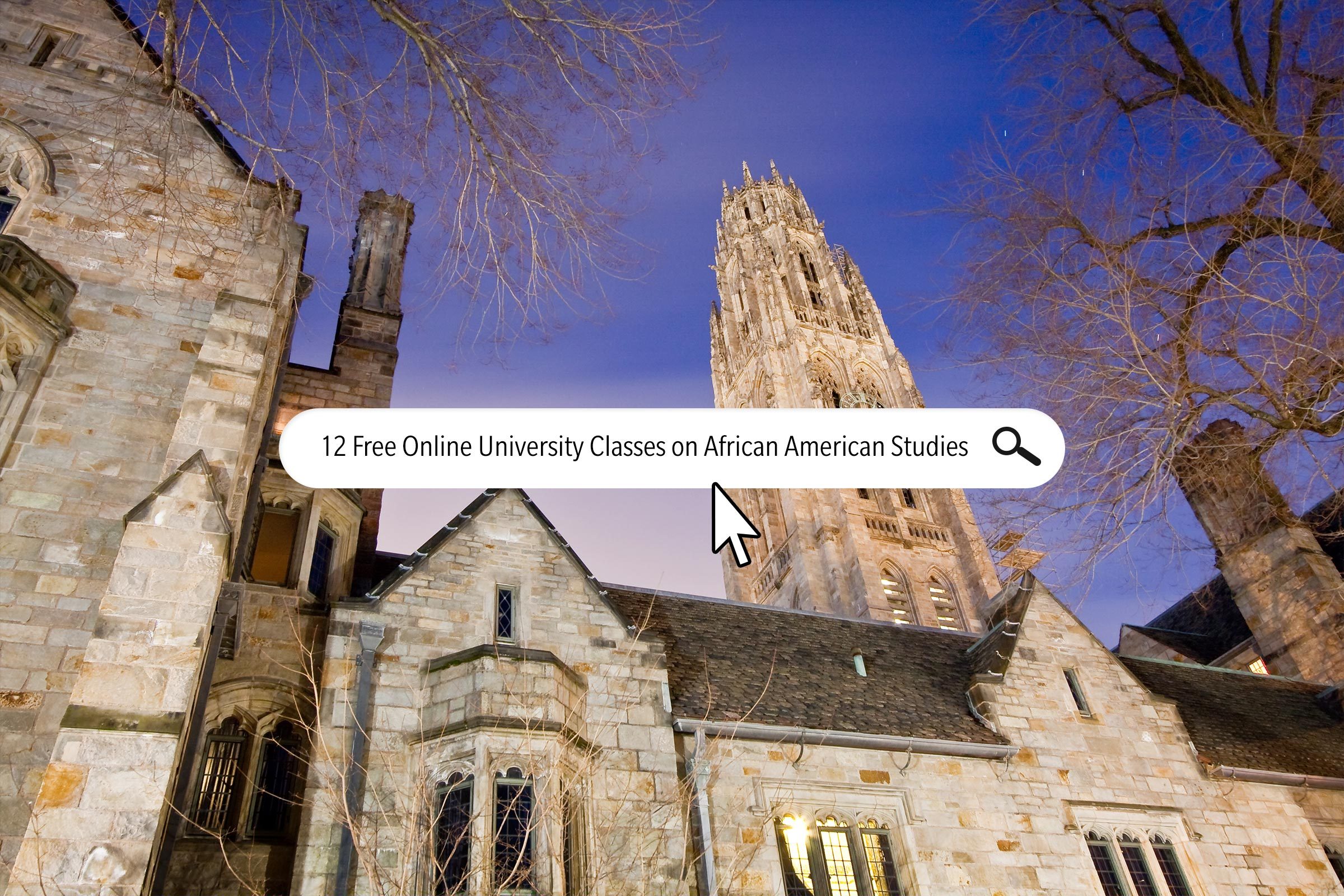
African American Studies: an essential education
The current political, social, and racial unrest in America and around the globe may be disconcerting, but it also provides a huge opportunity. By taking the time to learn about the roots of oppression and the psychology of how we learn prejudice, we can start to change the world for the better. In 2020, not having access to information that lends itself to learning about the experiences of others can no longer be an excuse. Case in point: An excellent, university-level education in Black studies is available to you right now—for free.
The following online courses, recorded at some of the most prestigious universities in the country, can fill in the gaps in your understanding and help you truly become an ally in the movement toward equality.
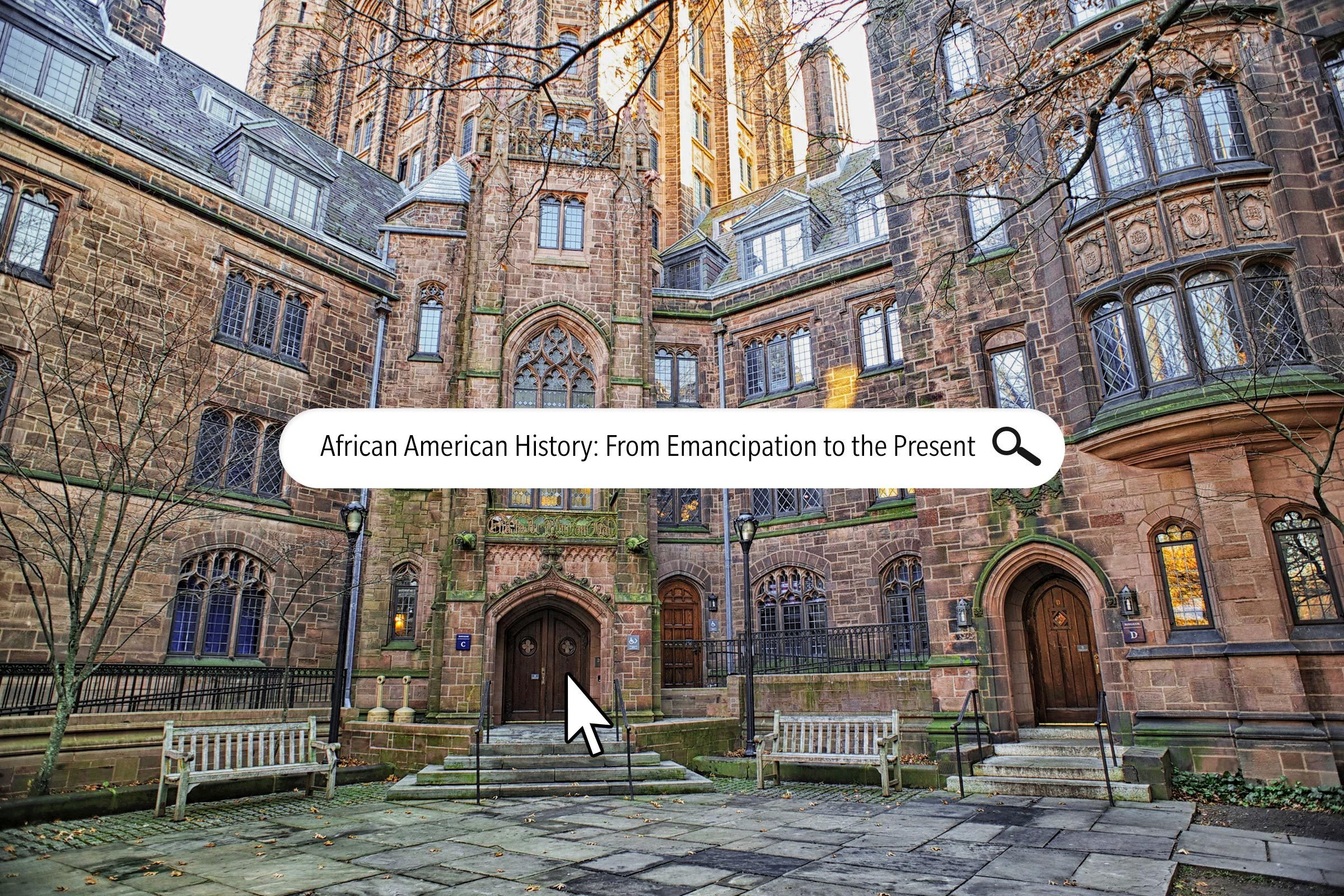
African American History: From Emancipation to the Present (Yale University)
How much do you really know about the civil rights movement and how effective it was? That’s what you’ll find out in Professor Jonathan Holloway’s online class, which was recorded in the spring of 2010 and consists of 25 lectures. It examines the experience of African Americans in the United States from 1863 to the present, as well as highlights works from notable Black authors such as James Baldwin, Eldridge Cleaver, and Richard Thompson Ford. Holloway, who has written extensively about the Jim Crow era, centers the course on the modern civil rights movement and leaders including Booker T. Washington, W.E.B. Du Bois, Martin Luther King Jr., and Malcolm X.
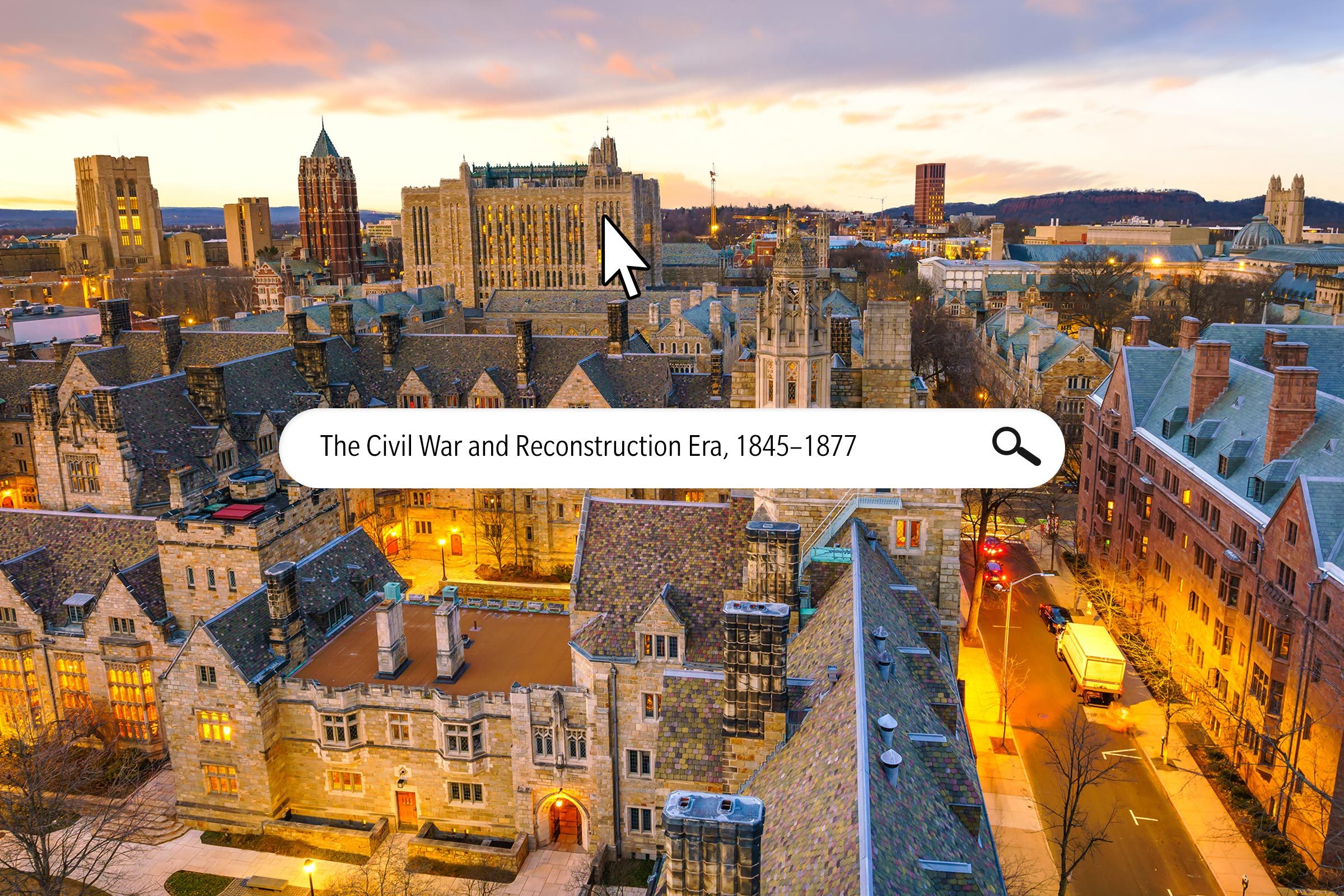
The Civil War and Reconstruction Era, 1845–1877 (Yale University)
A lot can happen in 32 years—and in 27 free online lectures. In this other Yale class, taught by Professor David W. Blight and recorded in Spring 2008, you’ll get to examine the causes and consequences of the Civil War—from moral, intellectual, constitutional, racial, sectional, and national perspectives—in this seemingly narrow but action-packed time period in America’s history. And if you’ve never actually read Narrative of the Life of Frederick Douglass, An American Slave, get ready for a different kind of education. If you want to learn even more about Douglass’ life, you can actually visit his home, which is now a historic site, and it just might inspire you to visit all of these American landmarks that celebrate Black culture.

African American Studies (UCLA)
As you may have realized in recent months with the protests resulting from George Floyd’s death, political trends are often influenced by Black political thought—but this is not a new phenomenon. In this series of nine lectures, the late Professor Mark Sawyer discusses major ideological trends, political thought patterns, and the historical context of African American social, cultural, and political movements in America. If you want to delve deeper into the parallels between Black political thought and trends in Western thought, this is the class for you.

African American History II (Notre Dame)
Do you know who the Scottsboro Boys were—and what landmark Supreme Court rulings resulted from the incident involving them? You should. In this free class from Notre Dame, Professor Richard Pierce covers material that spans the history of African Americans in the United States from the Reconstruction Era to the 1980s. In addition to the Scottsboro Boys, you’ll learn about the 1941 March on Washington, the post-war period, the Civil Rights Act of 1964, the Voting Rights Act of 1965, and the Black Power movement. By the way, this is the history behind the clenched fist—and how it became a symbol of Black power.
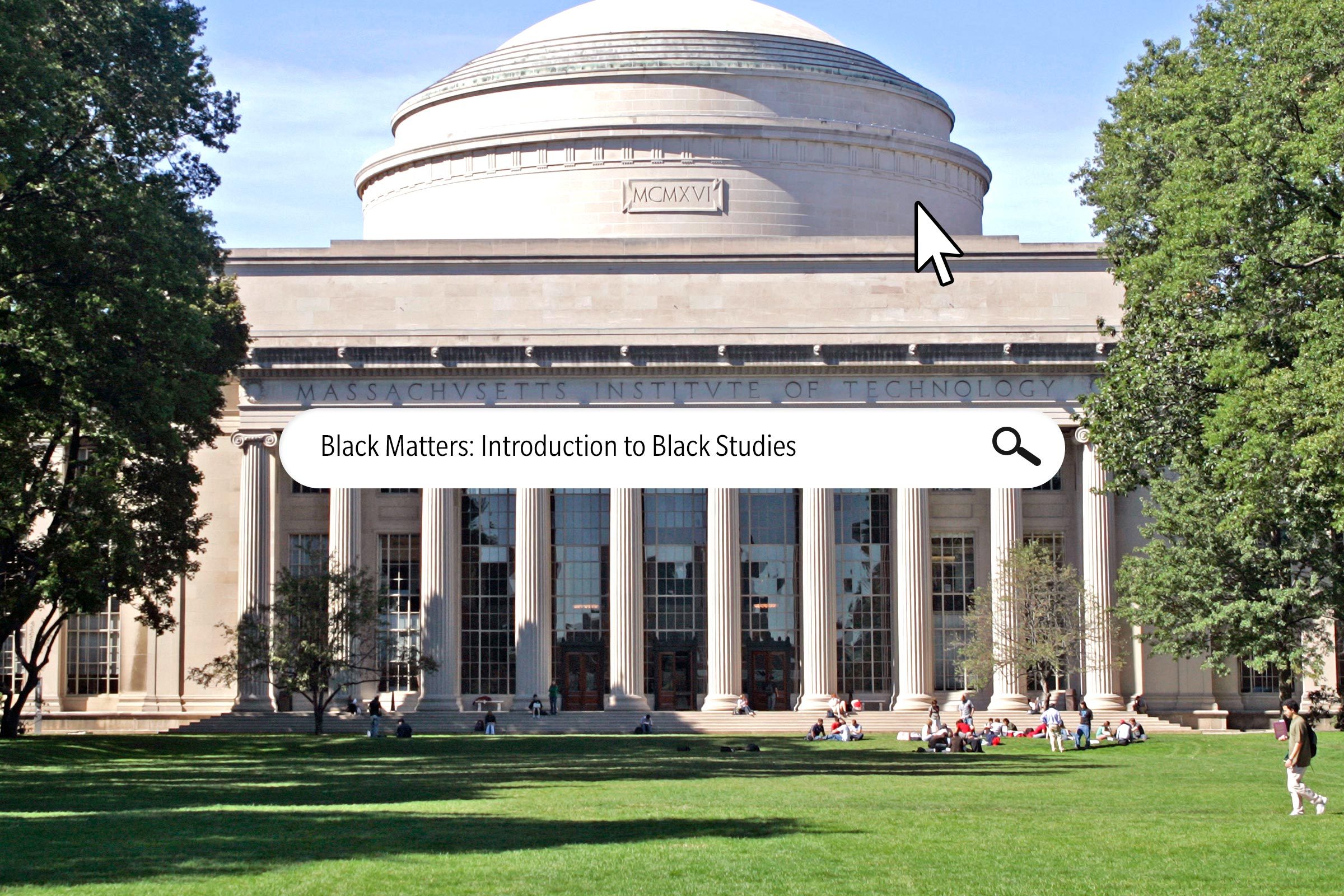
Black Matters: Introduction to Black Studies (MIT)
Taught by Professor Michel DeGraff in the spring of 2017, this undergrad course from MIT covers Black literature, anthropology, media studies, linguistics, and more. It also includes the experience of other minorities while focusing on the nuances and connections between “social, political, cultural, and linguistics patterns.” You learn through select video lectures, transcripts, presentations, and readings, including James Baldwin’s essay “If Black English Isn’t a Language, Then Tell Me, What Is?”

African Elements: Explorations in Black and Africana Studies (San Diego State University)
These 15 books are essential to understand race relations in America, and the same could be said about classes like this. In this 16-episode online course, which has been available to the public since 2013, Professor Darius Spearman teaches about “the historical and socio-political history of African people in America from the time of the Atlantic slave trade.” The series addresses questions about why Black studies are important, whether the Civil War ended slavery, and how the conservative era played out from Reagan to Obama.

From Freedom Rides to Ferguson (Emory University)
Imagine just how informative a course taught by an actual civil rights activist would be. Well, you don’t have to wonder any longer. This free online class from Emory, taught by activist and educator Bernard Lafayette has been available since 2015 and includes comprehensive and personal insights on this pivotal moment in American history. Through a series of videos, lectures, and special guest speakers, Lafayette highlights the importance of non-violent approaches to conflict, including those followed by Martin Luther King Jr. By the way, did you know that these 12 “facts” about Martin Luther King Jr. aren’t true?
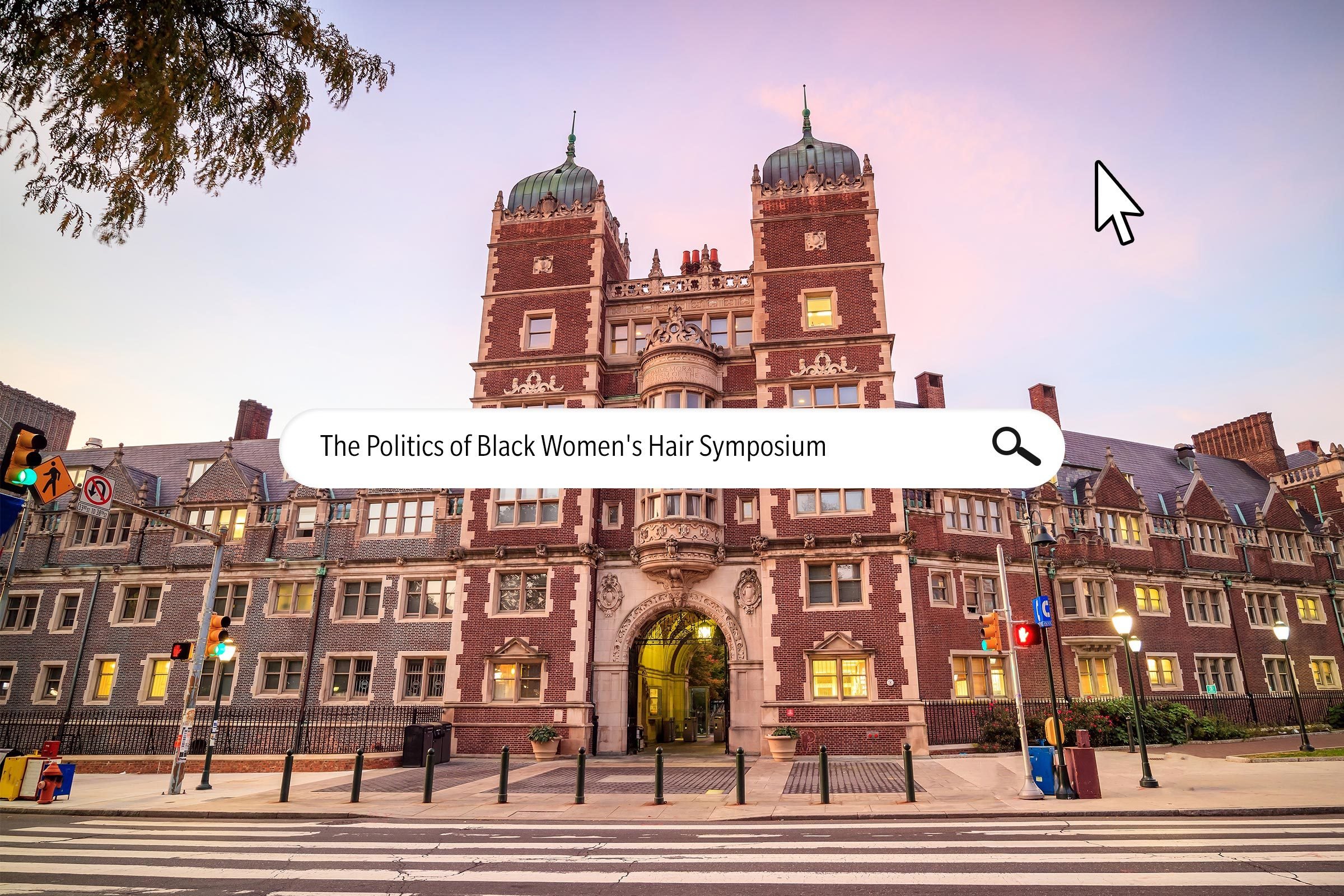
The Politics of Black Women’s Hair Symposium (University of Pennsylvania Center for Africana Studies)
From cornrows and Afros to plaits, beads, and ornate hair weaves, the hairstyles of Black women have long been a marvel—and the politics of Black hair have long been misunderstood. While some women choose to style their hair in a manner that suggests assimilation, others wear their hair as a form of resistance or as a political statement; still, others style their hair as a personal choice because they have the liberty to do so. This two-part symposium sponsored by the University of Pennsylvania provides a wealth of information on the topic and incorporates panels, documentaries, and short films. While we’re on the subject, check out these 14 Black-owned beauty products you should really know by now.
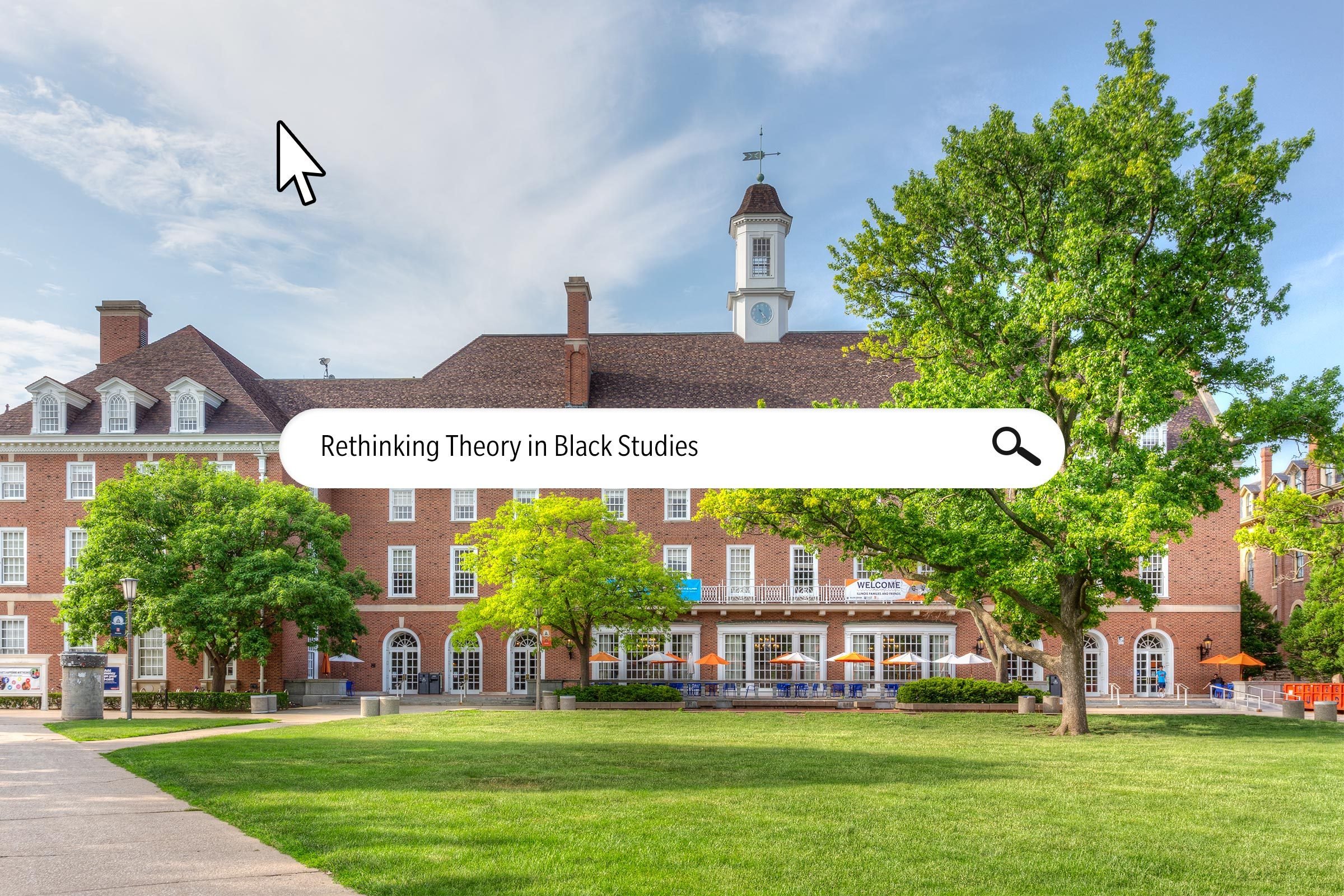
Rethinking Theory in Black Studies (University of Illinois, Urbana)
For those who’ve been paying attention, today’s racial crises are no surprise. And that’s why a course like this, which has been available online since 2010, is particularly valuable now. According to Professor Abdul Alkalimat, it’s been two generations since “Black Studies” has been a part of American academia, and that’s a problem since we need to reflect back on history to learn how we can move forward in a more productive way. Watch five lectures that cover ideology, methodology, history, tradition, and debate. Before you do, it’s helpful to understand why desegregation didn’t put an end to racism in America.
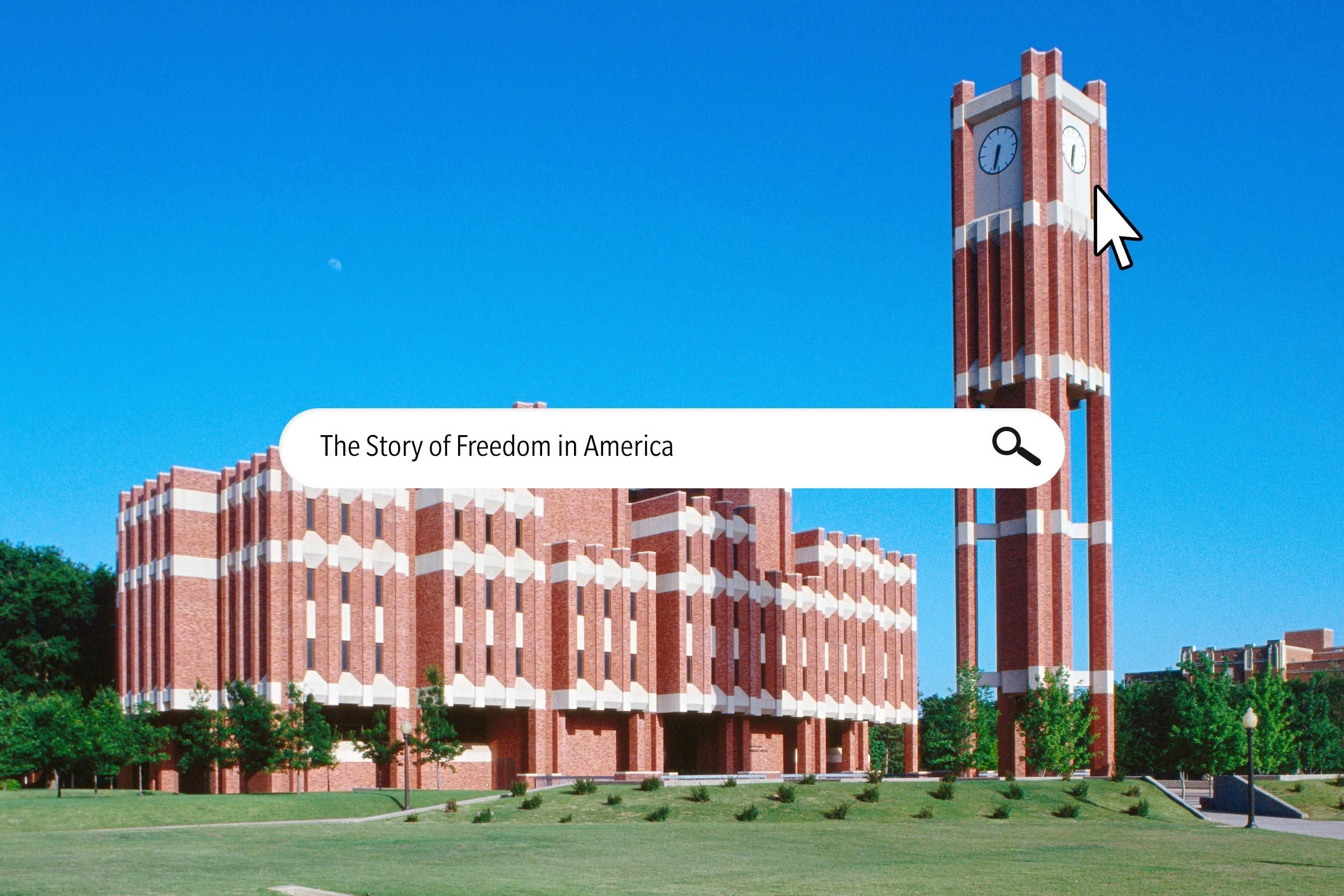
The Story of Freedom in America (University of Oklahoma)
African American history is American history, which is why it’s important to revisit what you think you know about America and its fight for independence. The late Professor J. Rufus Fears won “Professor of the Year” three times, but it was his 18-lecture series on “The Story of Freedom in America” that cemented his legacy at the University of Oklahoma. Available on YouTube and iTunes, this series is extremely detailed and delves into the contributions of John F. Kennedy and Martin Luther King Jr. to provide a solid framework for understanding how America’s quest for independence parallels the history of Blacks in America fighting for their own freedom and civil liberties.
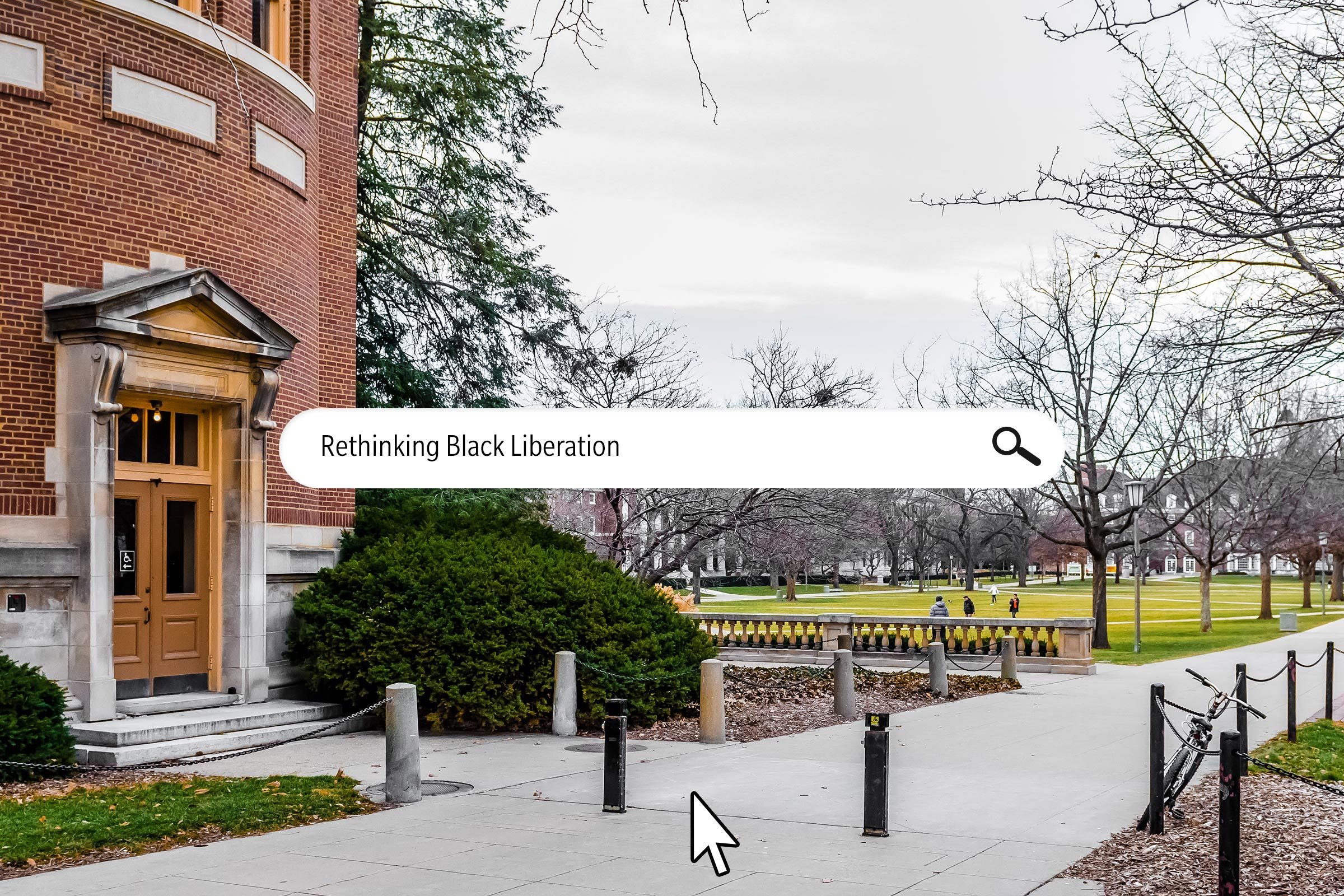
Rethinking Black Liberation (University of Illinois, Urbana)
There’s been talk of Black liberation for decades, but what does that mean, exactly? That’s what Professor Abdul Alkalimat addresses in this course. One of his main themes is “the Box.” As he explains, “Humans are born into many boxes simultaneously. Sometimes boxes are positive and provide a nurturing environment and sometimes not. But that’s where we all begin—in boxes.” In a series of ten lectures that range on topics from W.E.B. Dubois to the movement’s militant leaders, Alkalimat provides a nuanced and layered framework for understanding that centers the 1950s to the present. It’s also essential to hear about the everyday acts of racism that don’t get talked about enough.
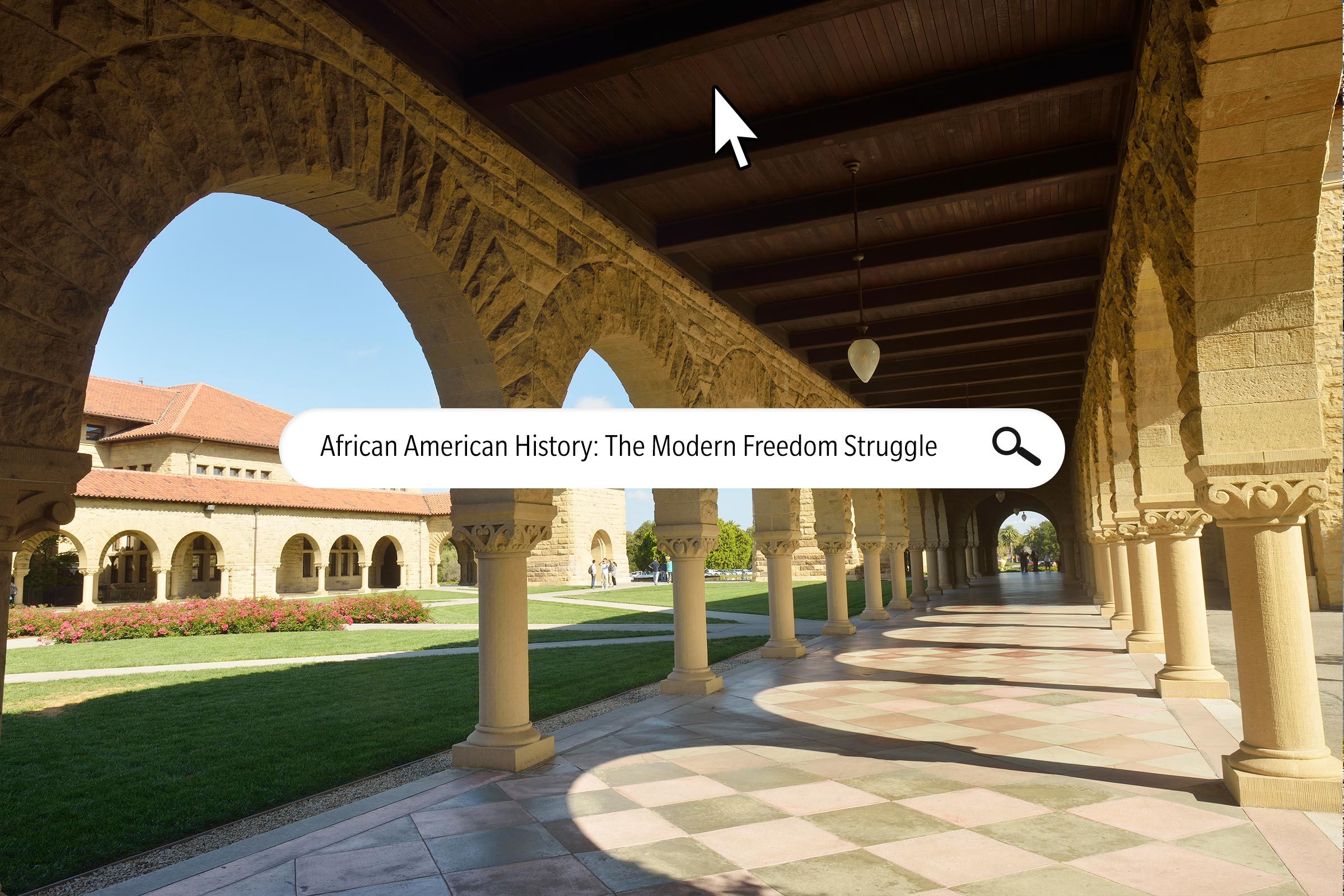
African American History: The Modern Freedom Struggle (Stanford University)
Who is Professor Clayborne Carson? The historian who Coretta Scott King personally requested to edit and publish her late husband’s work, so you’re definitely in good hands here. In this Stanford course comprised of 19 lectures, Carson focuses on the events after 1930 and highlights the African American struggle for freedom and justice. Topics range from “Du Bois and the Great Depression” to “Barack Obama’s American Dream.” Keep the learning going with these 45 free online college courses from the best colleges and universities.
For more on this important topic, see our guide to the Fight Against Racism.
